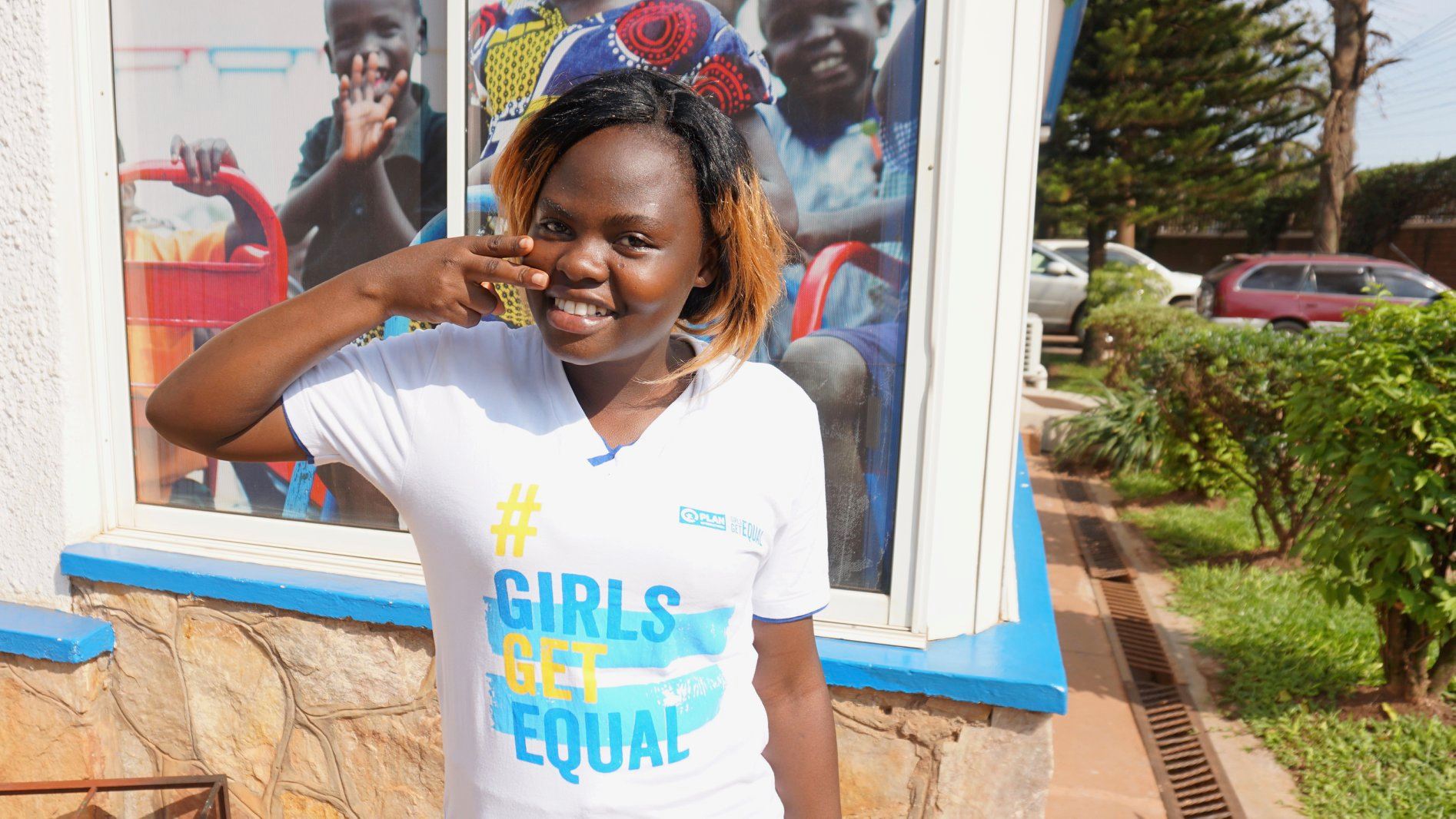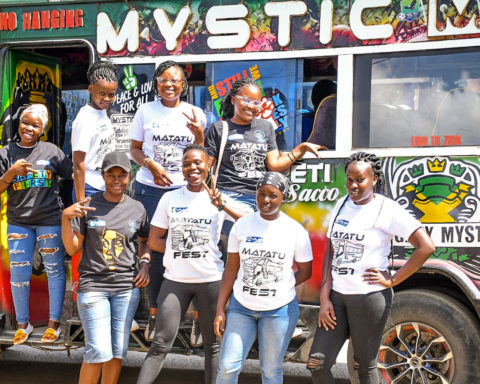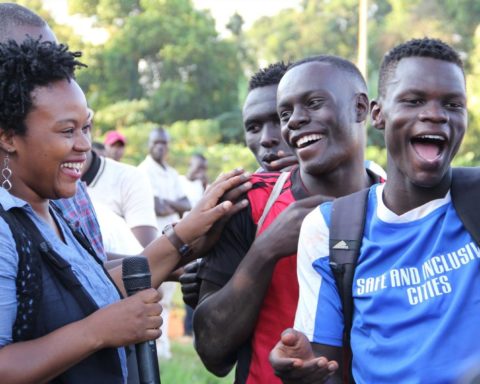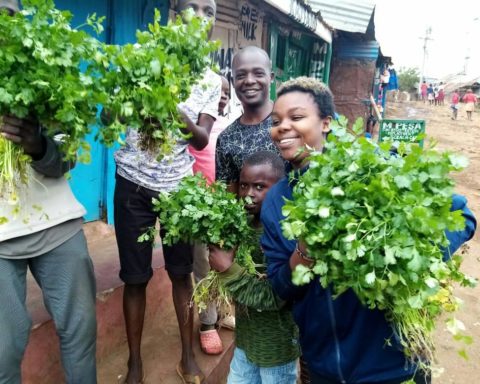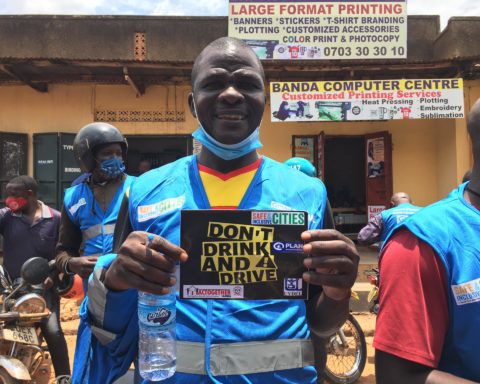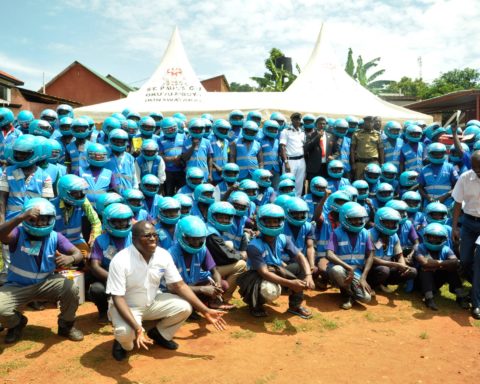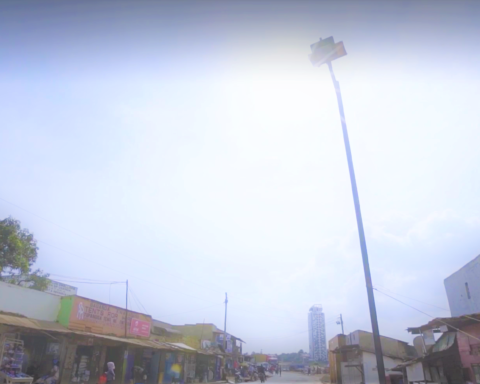Learnings
- GBV reporting can be increased through community awareness raising and specialised ‘gender desk’ police officers
- Youth are effective in sensitising peers and changing the culture around GBV
“There are too many glaring gaps in how gender-based violence is addressed”
Gender-based violence (GBV) cases have been on the rise in East and Southern Africa. Sexual violence and other forms of violence against women have devastating long-term consequences, both physical and mental. However, this issue remains largely unaddressed, both in public debate and by law enforcement. As a consequence, victims are left voiceless while perpetrators remain free to continue their abuse.
To make cities safer for women and girls, the Safe and Inclusive Cities (SAIC) programme carried out a multi-layered approach to bring GBV to the forefront in society and end the ever present threat of violence in people’s lives. In communities where SAIC was active there was a 14% increase in safety feelings among girls and women and a 15% increase in the reporting of violence. SAIC initiatives therefore tangibly improved safety in informal settlements across Ethiopia, Kenya, Uganda and Zimbabwe. Below are some examples of how these results were achieved.
Here we see GBV sensitisation through the media:
Gender-based Violence Training for Police
“We don’t get the cooperation we need from the police”
To help combat the disturbing rise in GBV, workshops were run to sensitise and equip police officers with the skills and knowledge needed to effectively implement community policing to respond to and prevent GBV. Police attending the training were officers in charge of local police stations (OCSs) in informal settlements and specialised gender desk officers. The training in Kenya was carried out in collaboration with Judy Lamet, Assistant Inspector General of Police, who lobbied for greater budget allocation for the gender desks to support more victims of GBV.
In addition to increasing safety through prevention, police training results in increased reporting of GBV, as victims trust that the police will hear their story and take meaningful action.
“It’s unacceptable” – Young People Make Themselves Heard on GBV
SAIC supports youth-led initiatives. This means young women and men first identifying the problems affecting themselves and their communities and then taking action to find solutions. GBV was a major issue highlighted by youth in informal settlements, however, the issue is largely ignored in society and rarely figures in public debate.
“Gender-based violence has no place in my community”
To stop this culture of silence, young people have been speaking out about GBV and sensitising both their peers and others in their local communities about the issue:
“Gender-based violence is a violation of human rights”
The youth voice has been spreading online and mobilising more and more young people to take action. Digital skilling through SAIC has enabled young women and men to traverse the online space and make their communication more impactful.
The following videos exemplify the diverse content being made by youth to raise awareness about GBV:
Bringing young people together is neccessary to bring stuctural and institutional change around issues like GBV as a united youth voice is harder for stakeholders to ignore. SAIC also provided training and workshops around how to engage with stakeholders. The resulting connections between youth orginisations and local stakeholders strengthens civil society and places youth interests on the agenda.
Preventing GBV During Covid-19 Lockdowns
In informal settlements, COVID-19 magnified already existing problems. The situation resulted in food crises, leaving residents desperate and vulnerable. With increased stressors and lockdown came an unfortunate rise in cases of GBV. SAIC moved quickly to address this and carried out door-to-door campaigns to target households that were identified as being the places most at risk of violence. The objective was to create awareness on forms of violence, causes, effects, remedies and how to report incidents.
Psycho-social advice was also offered via the phone by volunteer social workers.
In this unprecedented situation, youth organisations stepped up to raise awareness through videos and music, which they spread online to peers. This also gave those in informal settlements a platform to share their experiences, which so often go unregistered.

Learn more about
